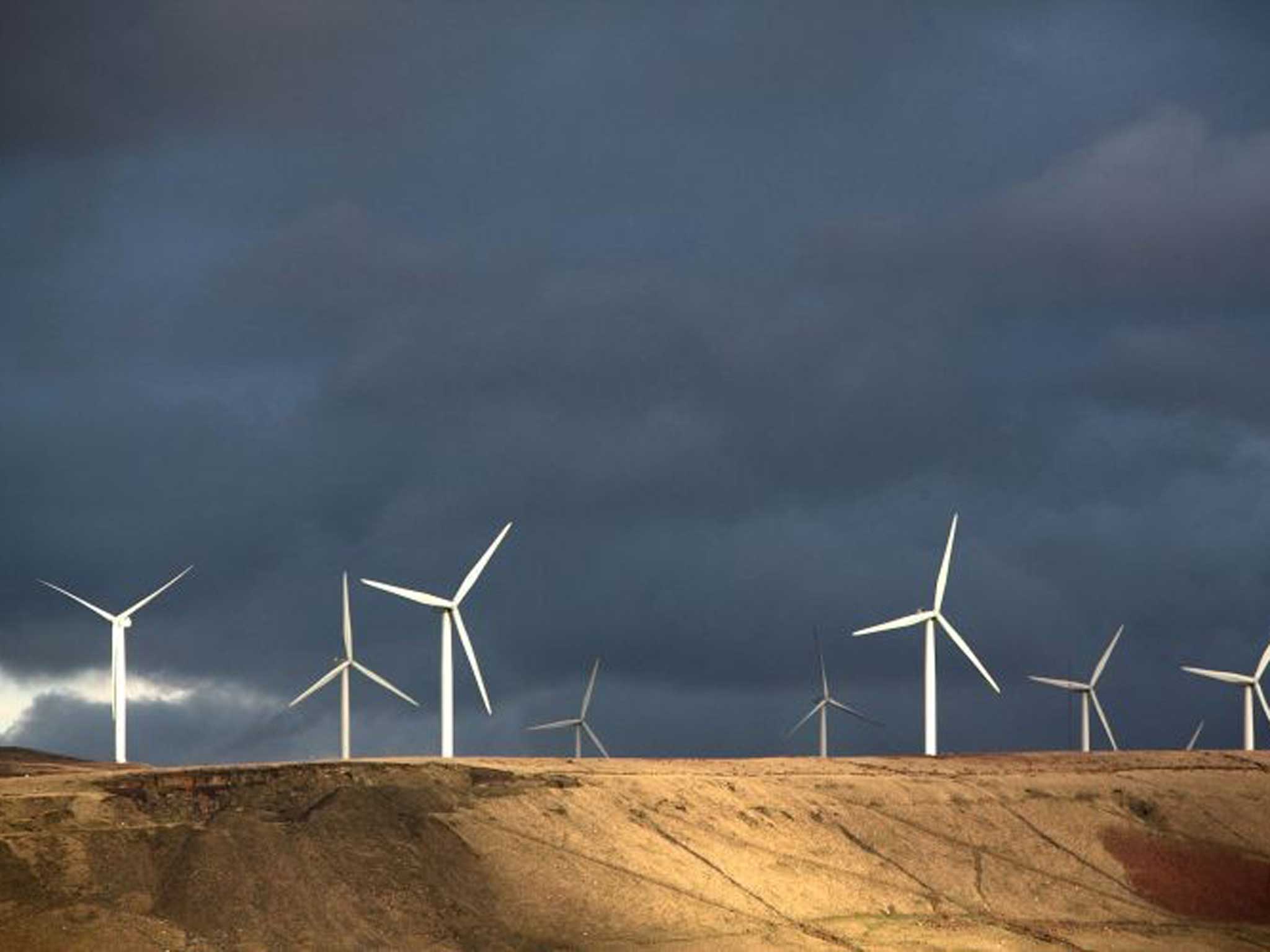Europe's energy policy: Just say no
The EU’s energy policy is incoherent to the point of non-existence - but Russia knows exactly what it is doing


Your support helps us to tell the story
From reproductive rights to climate change to Big Tech, The Independent is on the ground when the story is developing. Whether it's investigating the financials of Elon Musk's pro-Trump PAC or producing our latest documentary, 'The A Word', which shines a light on the American women fighting for reproductive rights, we know how important it is to parse out the facts from the messaging.
At such a critical moment in US history, we need reporters on the ground. Your donation allows us to keep sending journalists to speak to both sides of the story.
The Independent is trusted by Americans across the entire political spectrum. And unlike many other quality news outlets, we choose not to lock Americans out of our reporting and analysis with paywalls. We believe quality journalism should be available to everyone, paid for by those who can afford it.
Your support makes all the difference.Europe has an energy policy - just say ‘no’. Germany’s Chancellor Merkel says nein to nuclear power. France’s President Hollande says non to shale gas. Britain’s Prime Minister Cameron says no to wind power unless it is a few kilometres out to sea. Poland’s Prime Minister Tusk says nie to any limit on burning brown coal – lignite – the most polluting of any fossil fuel.
In all cases the political leaders have public opinion behind them, and think they will garner votes by saying no to any source of energy the electoral dislikes. The European Commission and European Parliament are saying no - for the time being - to South Stream, the new pipe-line to bring gas from Russia via the Black Sea, Bulgaria, Serbia and Austria. South Stream’s political imperative is to avoid transiting Ukraine just as Russia’s North Stream pipe-line in the Baltic links Russia directly to Germany without traversing Poland.
While the EU’s energy policy is incoherent to the point of non-existence, Russia knows exactly what it is doing – seeking to make Europe ever more dependent on Russian gas. It's a toss up whether Gazprom is an arm of the Russian state, or the Kremlin the political expression of Gazprom.
Certainly the Russian behemoth is everywhere. The Bulgarian Government has stated that it discussed with Gazprom changes to the Black Sea nation’s energy laws which could put South Stream out of reach of European Commission oversight
The European energy Commissioner, Gunter Oettinger wrote a cross letter to Sofia abut this legerdemain and at some stage Brussels will have to decide whether it will get as tough with Gazprom as it did with Microsoft and Intel.
However there is cross-party consensus in Bulgaria in support of South Stream and Bulgaria’s historic pro-Russian warmth is undimmed by the strains of the Ukraine crisis. Western energy firms who have invested in Bulgaria however want fair treatment as well and the main problem Europe faces with Gazprom is its apparent belief that it should not be subject to EU competition law.”
Gazprom sponsors football clubs in Germany, hires the daughter of Romania’s President Basescu as its lawyer in Bucharest, and most famously, has the former German chancellor, Gerhard Schroeder, on the payroll.
There is nothing intrinsically wrong in that. Swiss bankers say money has no smell and nor does energy. The West has been dependent for decades on oil from states that finance jihadi terrorism and want the elimination of a UN member state – Israel.
The Kremlin knows what it wants – to make Europe so hooked on Russian energy there will never be any pressure on Russia. But what does the EU want? The Polish prime minister, Donald Tusk, put forward an ambitious plan to create a real EU energy union.
Inspired by the 1950 Coal and Steel union which saw major European nations pool sovereign authority over what was then their main source of energy – coal, and the key component of growth – steel, to a supra-national authority Tusk argues for a single EU purchaser of Russian gas and for Europe to diversity its gas supply to include contracts with the United States or Australia.
He also wants to see an end to market-distorting subsidies such as the billions paid to windmill manufacturers. The Green movement especially in Germany and France have helped accelerate the slow de-industrialisation of Europe but Mrs Merkel’s Nein to nuclear and Francoise Hollande’s Non to fracking are about politics not economic growth.
Premier Tusk refuses any challenge to his nation’s dependence on lignite and the politics of an energy union which ignore climate change fears will not get off the ground.
However the Polish leader makes the good point that an EU outfit, Euratom is the single purchaser for all the uranium used by 28 member states. If a new body – let’s call it Eurogaz – became the single EU buyer of Russian and other foreign gas then Gaz-Kremlin-Prom would have to play by EU rules instead of having EU nations like Bulgaria defending at any price Gazprom, and behind it, the Kremlin with its divide and rule strategy for Europe.
Once new MEPs and Commissioners are in place creating a European Energy Union would be a project that even Eurosceptics might accept.
Join our commenting forum
Join thought-provoking conversations, follow other Independent readers and see their replies
Comments